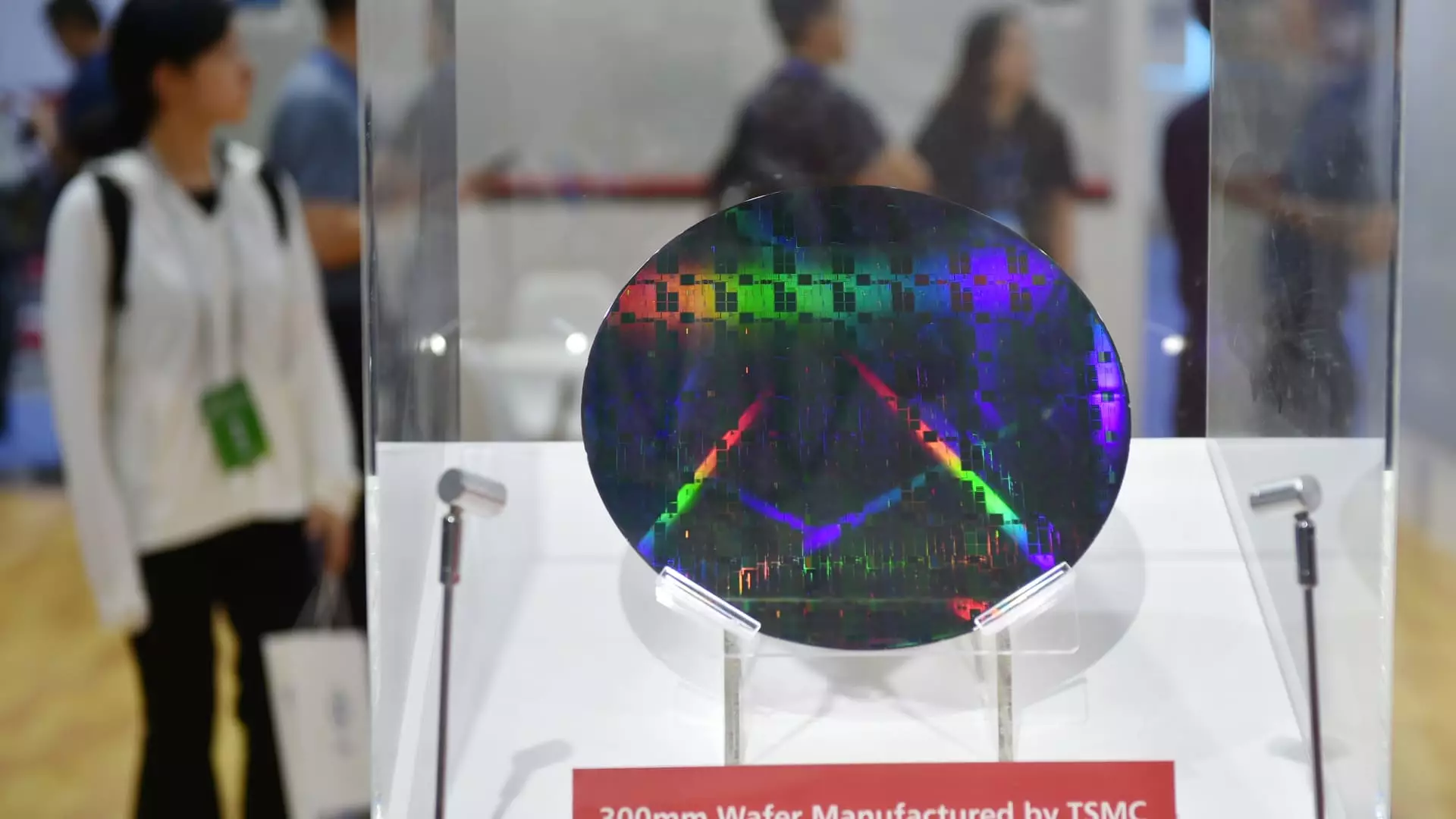Taiwan is at the forefront of the AI chip revolution and the global semiconductor industry, playing a crucial role in shaping the future of technology. The Taiwan Stock Exchange has seen significant gains, with the Taiex rising by 27.93% in the last 12 months, driven by the high demand for high-end chips and server supply chain components. One of the key players in Taiwan’s semiconductor industry is Taiwan Semiconductor Manufacturing Co (TSMC), the world’s largest contract chipmaker that produces advanced processors for leading tech companies like Apple and Nvidia.
Taiwan leads in advanced chip manufacturing technology, with a substantial global capacity share in processes such as 16- or 14-nanometer and more advanced processes. TrendForce data shows that Taiwan holds a dominant position in extreme ultraviolet generation processes, which are crucial for producing the world’s most powerful processors. The continuous investments in research and development of cutting-edge technologies have solidified Taiwan’s position as a leader in semiconductor manufacturing.
Global Collaboration and Market Dynamics
While Taiwan has a strong foothold in the semiconductor industry, it faces challenges from geopolitical tensions and competition from other chipmaking nations like the U.S., South Korea, and China. TSMC has been diversifying its operations, opening a chip fabrication plant in Japan and exploring new opportunities in response to evolving market dynamics. Additionally, the U.S. government has provided significant subsidies to attract chip manufacturing firms, aiming to strengthen its domestic semiconductor industry.
Resilience in the Face of Adversity
Despite facing challenges such as natural disasters like earthquakes, Taiwan has demonstrated resilience in maintaining its semiconductor production capabilities. The recent earthquake in Taiwan had a limited impact on listed companies reporting to the Taiwan Stock Exchange, highlighting the robustness of Taiwan’s business continuity planning. The ability to respond swiftly to disruptions and adapt to changing circumstances underscores Taiwan’s capability to navigate challenges and sustain its growth momentum.
Looking ahead, uncertainties from events like the U.S. elections and military conflicts may impact global capital markets, including Taiwan’s market. However, Taiwan’s strong fundamentals, resilience, and quick response capabilities position it well to weather external shocks and maintain stability in its capital markets. With a focus on innovation, collaboration, and adaptability, Taiwan continues to be a key player in driving the AI chip revolution and advancing the global semiconductor industry.
Taiwan’s leadership in the semiconductor industry is characterized by continuous technological advancements, strategic partnerships, and a resilient business ecosystem. As the world increasingly relies on AI technologies and high-performance chips, Taiwan’s contributions play a pivotal role in shaping the future of innovation and driving economic growth on a global scale.

